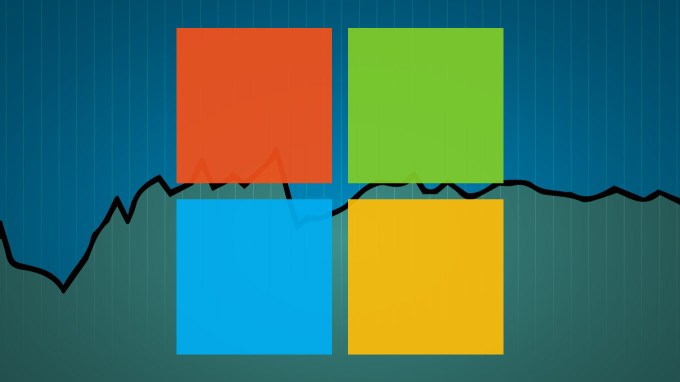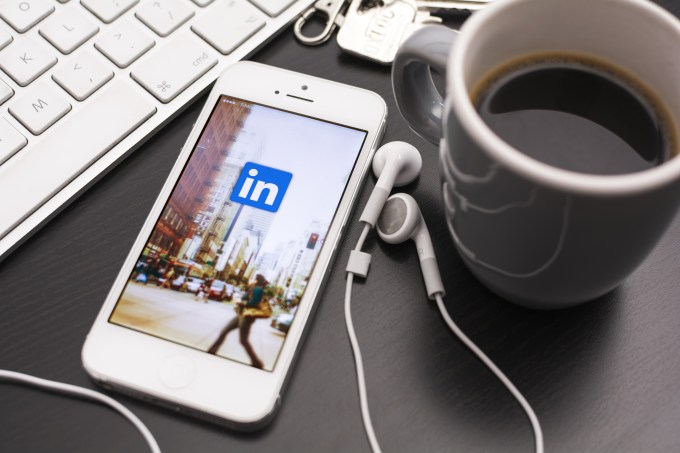Sprint has been inching its way toward beating Denver’s other mobile service providers and, in a report released Thursday, the smallest of the nation’s big four carriers outscored the competition, though just barely.
Related Articles
RootMetrics, the research firm that has team members nationwide who make calls and test mobile speeds indoors and out, said Sprint tied with AT&T and Verizon for best overall performance in the Denver region. Sprint scored a 96.4, a half-point more than next-place Verizon and above AT&T’s 95.7. Fourth-place T-Mobile wasn’t too far behind, at 94.9.
Those scores are based on 26,407 tests that RootMetrics conducted in the Denver area in March.
Sprint has improved since its typically last-place finish from just a few years ago. And looking closer at most recent results, something is definitely happening at Sprint, said Annette Hamilton, RootMetrics’ director. Sprint’s median download speed in Denver doubled to 19.6 mbps from a year ago. That was also well above the competition, with the other three posting median speeds of 11.7 to 13.5 mbps.
“A year ago, Sprint was also the fastest and they’ve doubled that. It’s the same in Colorado Springs, where (Sprint) has doubled to 25.6 mbps. They’ve done something to improve their speeds dramatically,” Hamilton said. “…That suggests to me that Sprint is investing in this.”
Mobile data speeds in Denver, first half 2017
In March 2017, RootMetrics sent out testers to make calls and test data speeds on the four major mobile carriers in Denver. Sprint was the fastest — by a lot. Below are the results of speed tests, in megabits per second.
| Test period |
AT&T |
Sprint |
T-Mobile |
Verizon |
| March 2017 |
13.5 |
19.6 |
12.5 |
11.7 |
| Aug. 2016 |
12.5 |
14.9 |
11.7 |
12.7 |
| Feb. 2016 |
8.31 |
9.81 |
4.45 |
6.82 |
Sprint has been investing in its network nationwide as part a program it calls Network Vision, which included ripping out the old network and replacing it with new network equipment. Sprint officials declined to elaborate on the changes but said more details are coming soon.
“We have been making numerous enhancements around Colorado, especially in Denver, which has become one of the best performing markets on the Sprint nationwide network,” said Greg Post, regional president for the Mountain Southwest at Sprint.
Sprint also won the RootMetrics top honor outright in Colorado Springs, scoring more than a point ahead of second-place Verizon. Sprint also had the fastest data speed in Colorado Springs, at 25.6 mbps.
For regional comparison, other cities have much faster data speeds. In Atlanta, Verizon topped the list with 41.6 mbps. T-Mobile ruled Lansing, Mich. at 50.4 mbps.
Related Articles
Sprint customers are also getting better data speeds because of the wireless spectrum the company owns above Denver and nationwide. Sprint doesn’t compete with the others in the more crowded 4G spectrum known as Advanced Wireless Services. Rather, it owns a less-crowded chunk of the wireless spectrum.
But while Sprint saw much improvement, the others maintained their scores from a year ago, which indicates they put some investment in their networks too, Hamilton added.
“Verizon is far and away the best performer across the nation,” Hamilton said. “Presumably, they’re continuing to invest, too. They just do a great job overall nationwide. Whereas for Sprint, they’re less good if you’re driving on a road in Montana.”
RootMetrics did ding Sprint for network reliability, or the ability to get online and stay online to do what you want to do on a smartphone, like view a complete webpage. Sprint, which ranked the lowest, was able to do that 95 percent of the time. By comparison, Verizon was at 99 percent.
All four showed data speed improvements. The slowest — T-Mobile at 12.5 mbps — was faster than what any carrier achieved a year ago, when Denver was named the slowest in the nation.
With the carriers scoring within a few digits of one another, the companies all did well considering this is Denver, Hamilton said.
“Denver may always have more challenges than a major city that is flat, Atlanta comes to mind. Atlanta has the Stone Mountain, but it’s like one little rock. Denver is always going to have challenges specific to the Rocky Mountains,” she said. “But I’m telling you that whatever it is the carriers are doing in Denver, it’s making a noticeable difference. There is no reason that any (customers) of the carriers can’t do normal tasks in Denver now, whereas before it was a little hit and miss.”


 Cisco has been rather acquisitive in recent years, buying 19 companies since 2015; today it announced it was acquiring cloud-based SD-WAN vendor Viptela for $610 million in cash. Viptela was founded in 2012 and had raised more than $108 million, including its most recent $75 million round just last May. The $610 million price tag appears to be a nice return for investors.
Cisco has been rather acquisitive in recent years, buying 19 companies since 2015; today it announced it was acquiring cloud-based SD-WAN vendor Viptela for $610 million in cash. Viptela was founded in 2012 and had raised more than $108 million, including its most recent $75 million round just last May. The $610 million price tag appears to be a nice return for investors.  Equinix, an international data center company based in Redwood City, California, announced today that it has completed the purchase of 29 data centers from Verizon for $3.6 billion. The acquisition greatly expands Equinix’s footprint, including giving it access to Latin America through a data center in Bogota, Colombia, along with a new presence in Houston, Texas and Culpeper, Virginia.
Equinix, an international data center company based in Redwood City, California, announced today that it has completed the purchase of 29 data centers from Verizon for $3.6 billion. The acquisition greatly expands Equinix’s footprint, including giving it access to Latin America through a data center in Bogota, Colombia, along with a new presence in Houston, Texas and Culpeper, Virginia. 



 There's a certain type of language we've come to expect from carriers and internet service providers over the years. Actual words are tossed into a blender; they come out meaning half of what they really do; and the rest of the definitions are tucked away in fine print at the bottom of the page.
There's a certain type of language we've come to expect from carriers and internet service providers over the years. Actual words are tossed into a blender; they come out meaning half of what they really do; and the rest of the definitions are tucked away in fine print at the bottom of the page. I'm not trying to lay judgment here. There is a general predisposition among the general public to distrust ISPs to an extent that maybe goes a bit far every now and then. And the likes of Google, Facebook, or Amazon
I'm not trying to lay judgment here. There is a general predisposition among the general public to distrust ISPs to an extent that maybe goes a bit far every now and then. And the likes of Google, Facebook, or Amazon 
 Microsoft just reported earnings for the last quarter. The company reported non-GAAP revenue of $23.6 billion and non-GAAP earnings per share of $0.73. Wall Street’s cadre of crack analysts expected the company’s earnings per share to come in at around $0.70, with revenue hitting about $23.6 billion. In the year-ago quarter, Microsoft reported earnings per share of $0.62. Wall…
Microsoft just reported earnings for the last quarter. The company reported non-GAAP revenue of $23.6 billion and non-GAAP earnings per share of $0.73. Wall Street’s cadre of crack analysts expected the company’s earnings per share to come in at around $0.70, with revenue hitting about $23.6 billion. In the year-ago quarter, Microsoft reported earnings per share of $0.62. Wall… 







 Back in February, the Facebook-led Telecom Infrastructure Project led a call to put $170 million into startups focusing on solutions to improve infrastructure: the switching technologies, engineering, cabling and other components that go into building networking for internet and other communications services. Today comes one more advance on that front: Facebook and the TIP are working…
Back in February, the Facebook-led Telecom Infrastructure Project led a call to put $170 million into startups focusing on solutions to improve infrastructure: the switching technologies, engineering, cabling and other components that go into building networking for internet and other communications services. Today comes one more advance on that front: Facebook and the TIP are working…  Microsoft announced some significant integrations between LinkedIn, the professional social network it bought last year for over $26 billion and Microsoft Dynamics 365, the company’s CRM and ERP suite. It was clear that when Microsoft paid that much money for LinkedIn, it had plans to use that data in other Microsoft products. Those ideas began to emerge last summer with some Office…
Microsoft announced some significant integrations between LinkedIn, the professional social network it bought last year for over $26 billion and Microsoft Dynamics 365, the company’s CRM and ERP suite. It was clear that when Microsoft paid that much money for LinkedIn, it had plans to use that data in other Microsoft products. Those ideas began to emerge last summer with some Office… 




 Microsoft is launching IoT Central today, a new Internet of Things (IoT) service that gives enterprises a fully managed solution for setting up their IoT deployments without needing the in-house expertise necessary for deploying a cloud-based IoT solution from scratch. It’s basically IoT-as-a-Service.
Microsoft is launching IoT Central today, a new Internet of Things (IoT) service that gives enterprises a fully managed solution for setting up their IoT deployments without needing the in-house expertise necessary for deploying a cloud-based IoT solution from scratch. It’s basically IoT-as-a-Service.